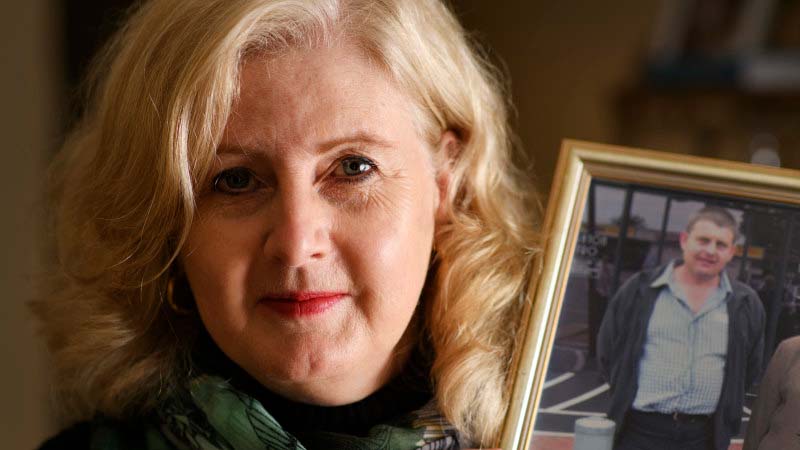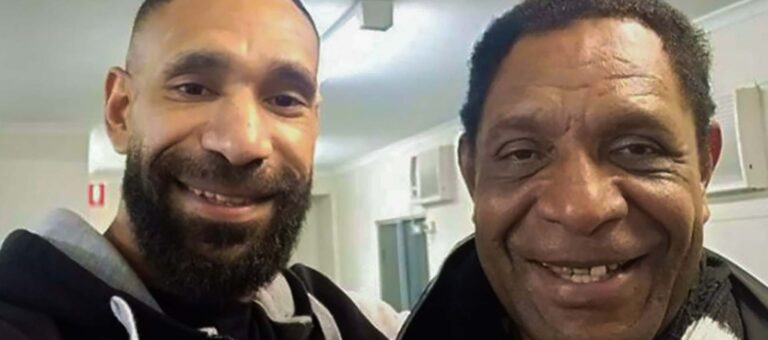David Harris, His Story
In 2019, David Harris died alone in his home and was not found for two months. He suffered the devastating and debilitating effects of schizophrenia for most of his adult life. In the early days of his illness he was managed in hospital, he was then cared for in community homes where he was able to receive appropriate medical and social care. However, as time marched on, and with the advent of the NDIS, his care became increasingly fractured until it ultimately failed completely.
He was living in his own accommodation with support from the NDIS provider and community psychiatric care. At some point the psychiatric care ceased to actively follow him up, and then, making matters worse, the NDIS services also came to an end. David, continued to experience chronic psychiatric symptoms and passed away in his home, presumably as a result of neglect, and was not discovered for over two months.
This is his story.
The Diagnosis
David was a very capable and gifted young man. At school, he was a good student and topped a number of his classes during high school. It was a large school with a lot of competition and many of his classmates went on to become doctors and lawyers despite the high school being in a low socio-economic area. He loved reading books and his main interest was science.
However, by the age of fifteen or sixteen years he seemed to change, he left school early and got a job in the public service. The workplace culture included a lot of drinking and it was not uncommon for David and his colleagues to consume alcohol at lunchtime and then return to work. It was not long before he was also introduced to drugs and as these patterns continued he became psychotic and he was admitted to Cumberland Hospital for the first time.
He was diagnosed with schizophrenia and it is important to note that while drug and alcohol use is common in the early stages of schizophrenia, it is usually not thought to be the cause of schizophrenia. Instead, a ‘prodromal illness’ where the patient experiences uncomfortable psychiatric symptoms and they look for other ways to control the problem – often drugs and/or alcohol which can ‘quieten’ the developing symptoms. This was the case for David.
His family, especially his parents felt devastated with what was happening to David. It is a very difficult illness for people to understand, and families often have trouble adjusting to their child’s new situation.
David attempted suicide on a number of occasions which added to the difficulties of the family. As often happens, the family tension built and there was very little effective support available for David and his family. Unfortunately, with one notable exception, they often felt they were somehow being blamed for David’s illness.
The Early Care
David’s Delusional Belief’s
The core symptoms of schizophrenia are the presentation of delusions and hallucinations. Delusions are abnormal belief’s that are incompatible with reality. In David’s case, he experienced religious delusional beliefs that God was talking to him through the radio and TV. Religious delusions are typical of schizophrenia and remained with him during the chronic or long term phase of his illness – in other words they persisted throughout his life.
Accommodation & Social Contact
David managed to live independently through most of his adult life, apart from a period where he cohabitated with girlfriend. Sadly, his girlfriend also suffered from psychiatric illness and she died of suicide.
People with schizophrenia typically pull away from social interaction and this was the case for David too. However, he maintained a relationship with his parents and sister. When his parents died, his only sister Leanne maintained contact with him although there were a number of limitations. By this time his sister was living in Adelaide and she travelled to Sydney at least annually to see him. She did try to speak with him on the phone at times but David was reluctant to use phones, presumably as part of his delusional system. Instead, they communicated with regular letters although they did have phone contact on birthdays.
The Introduction of the NDIS
David was one of the first people in Sydney with a mental illness to be involved with the NDIS in 2017. He worked in supported employment with Flourish Australia and also received cleaning and lawn mowing through the same provider. David also had a support coordinator through Community Connections whose role was to link David with support.
During this period, he continued to see the local mental health team for medication review and support. It seems that his mental health remained reasonably stable during their period and he did not not develop further acute episodes of illness.
Notably while his sister was referenced on the file as a carer and person for contact, the mental health team never contacted her. His sisters details were not included as part of the NDIS file.
Then, It All Went Terribly Wrong
He was reviewed by the Western Sydney Mental Health Team in 2016 and, after more than 30 years of contact including 29 admissions to the psychiatric hospital, his care was transferred to the Granville Mental Health Services. In 2018, the Granville MHT discharged him from their care, leaving him with no planned psychiatric care other than that of a general practitioner that he was referred to. Even worse, this practice had already closed and David was not able to attend even the minimal follow up.
David’s supported employment with Flourish ended, and as a result, his support services were curtailed too. On April 6 2019 David’s NDIS plan and funding was terminated when he did not attend an NDIS planning meeting. There is evidence that David made phone calls to both the NDIS and Flourish to try to arrange a ‘new plan’ but this was not followed through. Soon after this, David died but was not found for about two months.
David failed to call his sister for her birthday, triggering a growing concern. At the time, her own daughter, who has serious chronic medical problems, was in intensive care at the time but she began trying to contact David without success. Ultimately she called the local police and asked them to do a welfare check on David. It was then that David was found in an advanced stage of decomposition.
In fact, he died at home and with the services withdrawn, not even his death was detected and when he was found, he is thought to have been dead for about two months.
The Coronial Inquest to Follow
A post mortem was unable to identify a cause of death but given that in the last few years he had been bounced from one service to another and had services withdrawn, the real cause of his death was neglect by the services tasked with caring from the most vulnerable in our society.
A petition was started and achieved nearly 20,000 signatures and finally, a coronial inquest was started. The hearing is set to take place in 2022 and his family have a number of hopes for its outcome.
First, the reasons for his death will be reported and commented on, especially the role of defunded and service withdrawal.
Second, that changes can be made to ensure that problems evident in the system can be remedied to prevent further deaths in other vulnerable people.






